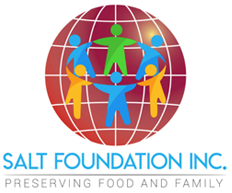Originally published on https://www.nj.com/hudson/2021/01/community-fridges-are-trying-to-give-people-sustenance-not-just-powdered-cheese.html
The network of Hudson County community fridges that have popped up in the wake of the coronavirus pandemic are still going strong thanks to the hard work of facilitators like Anna Flores, of the Union City Community Fridge, and Sarah Legler, of the Jersey City Heights Community Fridge.
Earlier this month, the Jersey City Heights community fridge, located at Webster Street between Congress and North Streets, got a vibrant paint job.
The Union City Community Fridge, started by Flores in June of last year, moved to its second location, 130 19th St. (between Mountain Road and Cliff Street) at the end of November.
The network of Hudson County community fridges that have popped up in the wake of the coronavirus pandemic are still going strong thanks to the hard work of facilitators like Anna Flores, of the Union City Community Fridge, and Sarah Legler, of the Jersey City Heights Community Fridge.
Earlier this month, the Jersey City Heights community fridge, located at Webster Street between Congress and North Streets, got a vibrant paint job.
The Union City Community Fridge, started by Flores in June of last year, moved to its second location, 130 19th St. (between Mountain Road and Cliff Street) at the end of November.
The network of Hudson County community fridges that have popped up in the wake of the coronavirus pandemic are still going strong thanks to the hard work of facilitators like Anna Flores, of the Union City Community Fridge, and Sarah Legler, of the Jersey City Heights Community Fridge.
Earlier this month, the Jersey City Heights community fridge, located at Webster Street between Congress and North Streets, got a vibrant paint job.
The Union City Community Fridge, started by Flores in June of last year, moved to its second location, 130 19th St. (between Mountain Road and Cliff Street) at the end of November.
The network of Hudson County community fridges that have popped up in the wake of the coronavirus pandemic are still going strong thanks to the hard work of facilitators like Anna Flores, of the Union City Community Fridge, and Sarah Legler, of the Jersey City Heights Community Fridge.
Earlier this month, the Jersey City Heights community fridge, located at Webster Street between Congress and North Streets, got a vibrant paint job.
The Union City Community Fridge, started by Flores in June of last year, moved to its second location, 130 19th St. (between Mountain Road and Cliff Street) at the end of November.
“What (Wheeler) does is she works with different supermarkets like Trader Joe’s and Wegmans, and what she does is she takes anything they would throw in the trash,” Flores explained. “There’s nothing wrong with it, it’s not expired, but the way inventory works in stores is they need to empty out the shelves to bring in new inventory that comes in every two days.”
Wheeler gives this food to the local community fridges. “She’s our main source of sustenance for the fridge,” Flores said. “The nice thing about Trader Joe’s and Wegman’s is they have a lot of organic food and produce, so we have access to fresh fruits, fresh vegetables … There’s a lot of things that (those utilizing the fridge) are getting that they couldn’t afford were it not for the fridges.”
Flores expressed a key thing she thinks has been learned during the pandemic is how so many people are one paycheck away from losing “a lot.”
In addition to being able to help her student’s families, through the fridge Flores has been able to help people who – especially before the small stimulus packages or unemployment boosts, she noted – had been safely middle class and then found themselves with nothing.
But it’s the undocumented community, she said, who don’t have access to welfare programs who have been left out to dry. “This is the best way I found that I can help them, and it’s really nice to see that once I got something started, the way that everybody can pitch in.”
If there are two or three people who might be utilizing the fridge who may not necessarily need to, Flores said they’re serving 12 families that do.
Over in the Heights, Legler has noticed a huge cross-section of different people using the fridge.
“Our neighbors use the fridge, people from all over Jersey City use the fridge. But I think people who come from further afield use the fridge as well. We definitely have people who come regularly now that they know that it’s here, and they tell their friends about it. Word spread quickly once we were able to really kind of keep food regularly coming in.”
Legler said the Heights fridge has a network of 40 volunteers doing things like grocery shopping and cleaning the fridge along with others.
“I lived in the city for a really long time, moved here a couple of years ago, and I loved this community really a lot more than I expected to,” Legler said. “But I certainly don’t have the deep roots here that a lot of our volunteers do, so they have as much ownership and commitment to seeing this thrive as I do.”
Fliers for the fridges are going up places with a lot of forethought – laundromats, places where those undergoing food insecurity might be pointed toward it.
“There’s really only one other food pantry in the Heights remotely near us and they operate a day a week for a number of hours,” Legler said. “Not everybody can stand for three hours on Saturday morning to get a bag of groceries. The gaps that the fridges fill is that they’re open 24/7.”
When reminded about some efforts by Jersey City officials and the city itself to feed people, Legler acknowledges “any efforts that the city makes are good efforts.
“I mean, they should be addressing the root causes of poverty and a systemic lack of access to resources for certain people. But the fact that these community fridges exist and that some of us are filling up our fridges multiple times a day and that the fridges are completely empty every single morning speaks to the need for more – for them to do more.
Government programs don’t cover people’s basic needs, Legler said. “You can’t buy hygiene products with those programs, so we’re lucky that sometimes people have the ability and the will to provide menstrual products and toothpaste and a lot of things that people have to access to for a quality, healthy life that are not provided by government. I’m not just talking about Jersey City, everywhere can do better, at a time where so many people have so much need, I think money that’s spent on certain things should be reallocated to meeting people’s basic, living needs.”
As a graduate student pursuing a masters in social work, Flores has to think about the causes, effects and possible solutions to food insecurity and the web of poverty it stems from.
“How do we fix it?” Flores said. “I think the main issue is a lot of people don’t really realize the psychological aspect of food insecurity in terms of poverty and how much that affects the rest of your life, more or less -- where you grew up, what zip code you belong to, what your education was like, did your parents own property.
Government programs don’t cover people’s basic needs, Legler said. “You can’t buy hygiene products with those programs, so we’re lucky that sometimes people have the ability and the will to provide menstrual products and toothpaste and a lot of things that people have to access to for a quality, healthy life that are not provided by government. I’m not just talking about Jersey City, everywhere can do better, at a time where so many people have so much need, I think money that’s spent on certain things should be reallocated to meeting people’s basic, living needs.”
As a graduate student pursuing a masters in social work, Flores has to think about the causes, effects and possible solutions to food insecurity and the web of poverty it stems from.
“How do we fix it?” Flores said. “I think the main issue is a lot of people don’t really realize the psychological aspect of food insecurity in terms of poverty and how much that affects the rest of your life, more or less -- where you grew up, what zip code you belong to, what your education was like, did your parents own property.



